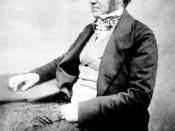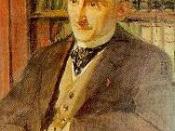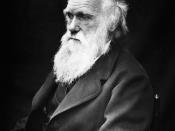The concept of evolution first came about during the era of the Enlightenment. It was a concept that was radically different, even heretical, in a Judaeo-Christian society. Evolution, the concept of creation without a consciously, intelligent, omni-everything creator, was met with vicious opposition. It is, therefore, not surprising that it took until the middle to late nineteenth century for it to be accepted at least in part as a respectable tenant of the scientific community. Naturalist Charles Darwin was the first to present an argument that was not rejected out of hand. This had more to do with the fact that in 1859 the social climate was now open to new concepts, thanks in part, to such forerunners as French Evolutionist Jean-Baptist de Lamack and the German Naturphilosophs. This is not to say that the social structure, in which Darwin published Origin of the Species, went so far as to enthusiastically embrace evolutionary theories, but it did listen and analyze the concepts rather than committing the vicious atrocities that occurred during the Enlightenment, at least atrocities were not committed because someone choose to following an evolutionary theory rather than Judaeo-Creationism.
Forty-seven years later, Origins of the Species had enough of a significant influence that it merited attention and affluent adherents and skeptics. One such person, who was for the most part a skeptic, was Henri Bergson. Born the year Origins of the Species was published, Bergson grew up with Christian theology and Darwinian Evolution being preached to him. He had a mind of his own and was not afraid to use it. Thus, in 1907, Bergson published a new theory that had slight elements of both creationism and Darwinian evolutionism, but his argument was logical, innovative, and quite different from either of the opposing theories. Where Darwin had...



Great essay!
Original writing, which was thoroughly researched, considering the extensive bibliography! Keep it up!
0 out of 1 people found this comment useful.